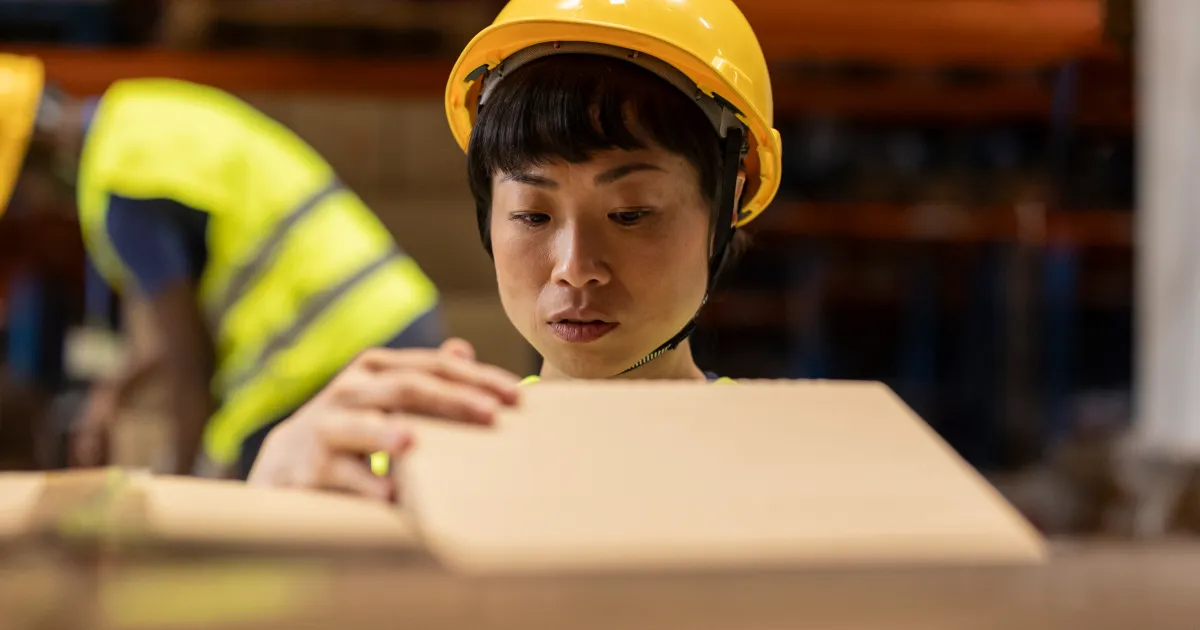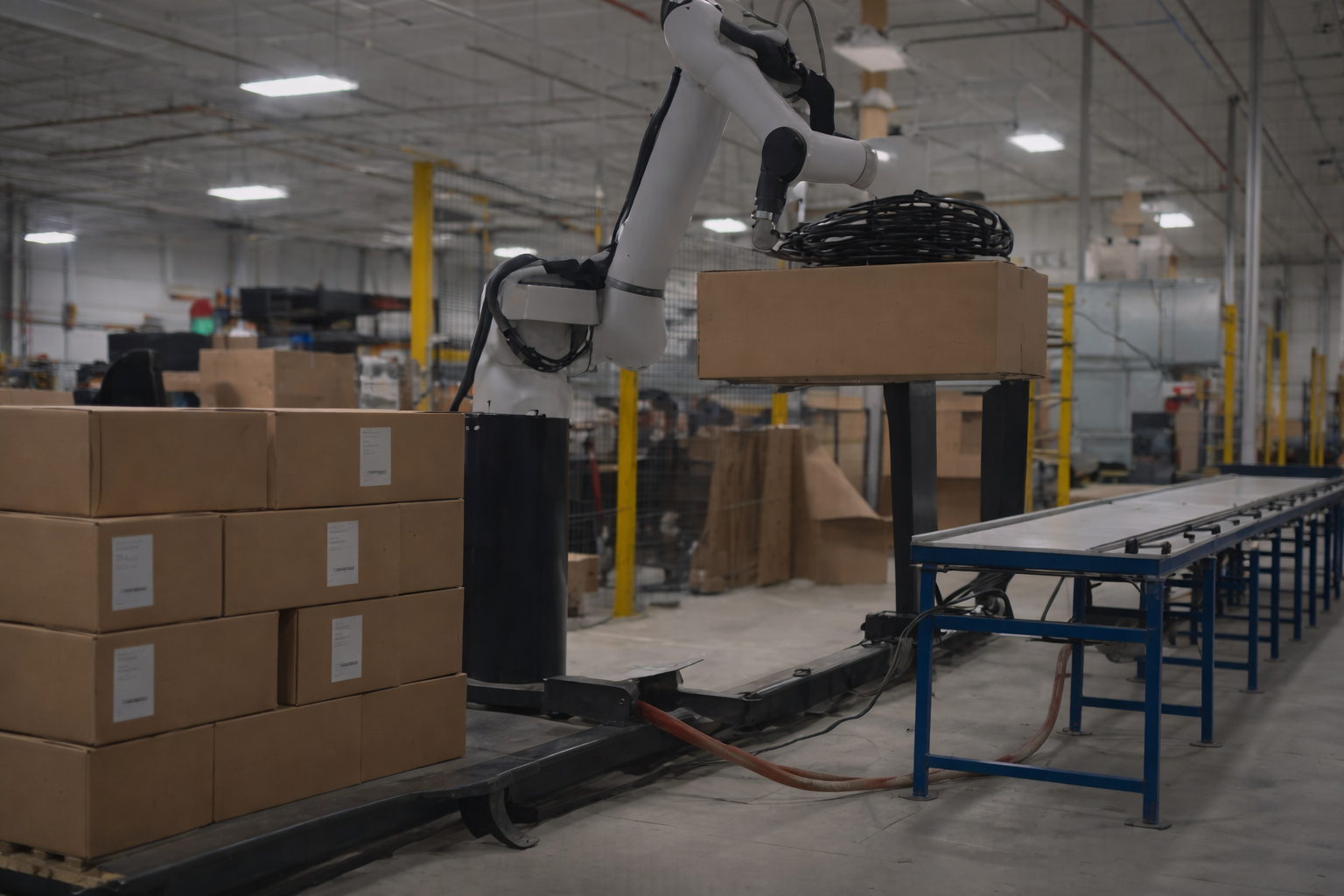Co-packers are the backbone of industries like food manufacturing and cosmetic packaging, ensuring products are efficiently packaged and delivered to meet market demands. However, the co-packing industry faces significant hurdles, from labor shortages to increasing sustainability requirements. With the rise of AI-powered palletizing robots, co-packers have a powerful solution to overcome these challenges while boosting productivity and competitiveness. Here's a look at the top five challenges co-packers face and how AI robotics can help.
1. Labor Shortages
The demand for skilled labor continues to outpace supply. This shortage is exacerbated by the physically demanding nature of tasks like palletizing, which often leads to high turnover rates.
How AI Robots Help:
AI palletizing robots excel at automating labor-intensive tasks, ensuring consistent output without the need for constant hiring and training. By adopting these systems under a Robots as a Service (RaaS) model, co-packers can access scalable automation without significant upfront investments. This flexibility helps maintain productivity even during peak demand periods, without the need to rush to hire employees who may not be qualified.
2. High Operational Costs in Competitive Markets
Rising labor, material, and energy costs put pressure on co-packers to stay competitive while maintaining profitability. Supply chain disruptions, geopolitical factors, and increasing global demand for materials have increased the associated costs of manufacturing dramatically.
How AI Robots Help:
By improving accuracy and reducing waste, AI-powered robots help co-packers cut costs across multiple touchpoints. For example, these robots can optimize pallet configurations to minimize packaging material usage, lowering costs while meeting sustainability goals. Similarly, factories benefit from streamlined workflows and precise handling of delicate or high-value products, ensuring efficiency without compromising quality.
3. Bottlenecks and Packaging Delays
Co-packers, especially those serving fast-moving industries, face tight deadlines to deliver large volumes of products. The demand for faster production and quicker turnaround times has been growing. The rise of e-commerce has only exacerbated this pressure on co-packers to deliver large volumes of products quickly. The increased pressure to meet tight deadlines often exposes inefficiencies in manual processes, which leads to bottlenecks.
How AI Robots Help:
AI palletizing robots can process high volumes with unmatched speed and accuracy, reducing delays and enhancing throughput. These robots are a game-changer for co-packers managing bulk shipments, such as for seasonal spikes or product launches, especially in sectors where labor shortages are severe. At industry events like the PackExpo International 2024 Innovation Stage, these technologies have been highlighted as critical tools for addressing bottlenecks in modern supply chains across industries.
4. Ensuring Consistency in Quality Standards
Products can be over-handled, dropped, or damaged during the manual process. In industries like food and cosmetics, where products are often fragile or sensitive to contamination, mishandling can lead to waste or compromised product integrity. Repetitive tasks in manual handling can lead to operator fatigue, which increases the likelihood of mistakes. Distractions, such as multitasking or working under time pressure, also contribute to errors in the packaging or handling process. With labor shortages skyrocketing, the likelihood of errors in the packaging process is increasing.
How AI Robots Help:
AI-powered robots improve accuracy in co-packing lines by using advanced sensors and machine learning algorithms to adapt to a variety of products. Whether stacking pallets of fragile cosmetic items or heavy boxes of food products, these robots maintain precision, ensuring compliance with stringent quality standards.
5. Environmental and Sustainability Challenges
Sustainability is a growing concern in industries like pharmaceuticals and textiles, where reducing waste and energy consumption is critical for maintaining brand reputation and meeting regulatory requirements.
How AI Robots Help:
AI palletizing robots contribute to eco-friendly practices by optimizing packaging layouts to minimize material waste. Additionally, their efficient energy usage helps reduce the carbon footprint of co-packing operations. Co-packers showcasing their commitment to sustainability at industry events demonstrate how AI robotics can address environmental concerns while boosting operational efficiency.
Why AI Palletizing Robots Are Essential for Modern Co-Packers
AI palletizing robots are more than a solution to current challenges—they are a long-term investment in innovation and growth. From addressing labor shortages and operational inefficiencies to enhancing accuracy and supporting sustainability goals, these robots transform co-packing workflows across industries.
At industry trade shows like PackExpo International, the latest advancements in AI robotics for food manufacturing, cosmetics, and beyond highlight how these technologies are reshaping the packaging landscape. By embracing AI-powered automation, co-packers can stay competitive, reduce costs, and align with evolving market demands.
Are you ready to redefine your co-packing operations with AI robotics? Discover how Tutor’s Palletizing Robots can help you overcome challenges, streamline workflows, and unlock new levels of productivity and sustainability.



